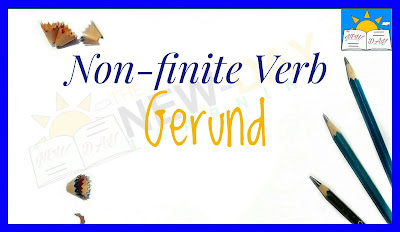Gerund, like Participle, is also an -ing form of a verb. Gerund has qualities of a noun as well as a verb.
Now look at these sentences –
- He likes dancing.
- Reading is my hobby.
- I don’t like playing cards.
Use of Gerund:
Rule 1: As a Subject –
- Swimming is a good exercise.
- Serving people is a great work.
- Gardening is my hobby.
- Watching cartoon is the most delightful thing.
Rule 2: As an Object –
- She loves singing folk songs.
- Everyone likes reading story books.
- I like playing flute.
- Rahat isn’t fond of riding bike.
Rule 3: Used after a Possessive Word–
- People love Jackson’s dancing.
- My mother has a great influence on my brother’s being a painter.
- There was a restriction on his going out.
- His father doesn’t like his drinking alcohol.
Rule 4: As a Subject Complement –
- Seeing is believing.
- What ruined his life is gambling.
- Serving people is serving the almighty.
- My hobby is gardening.
Rule 5: As an Apposition of a Aoun or a Pronoun –
- Your intention, helping the poor, is appropriated.
- The act, befooling the parents, is foolish itself.
Rule 6: Used after Definite Article ‘the’ –
- The groaning of the lady fears frightened everyone.
- The portraying of the artist is admirable.
- The publishing of the book started from 1849.
- The playing of chess loses its popularity.
Rule 7: Used after some Prepositions –
Gerund can be used after some prepositions like — After, at, before, besides, by, for, from, in, to, without.E.g.-
- He helped the man by giving him money.
- Without working hard, one can not become a successful person.
- She saved me from being an alcoholic.
Rule 8: Used after the verbs – allow, advise, forbid and permit –
- They do not allow spreading rumours.
- The teacher advised respecting the elders.
- Mother forbade eating fast-food.
- The government permits exporting the weapons.
■ If you see there is an object after these verbs, a ‘to-infinitive’ is used rather than gerund.
E.g.-
- They did not allow the people to spread rumours.
- The teacher advised the students to respect their elders.
- Mother forbade me to eat fast-food.
- The government permits the company to export the weapons.
Thank you…


1 thought on “Gerund – Non-finite Verbs | Uses and Examples of Gerund”